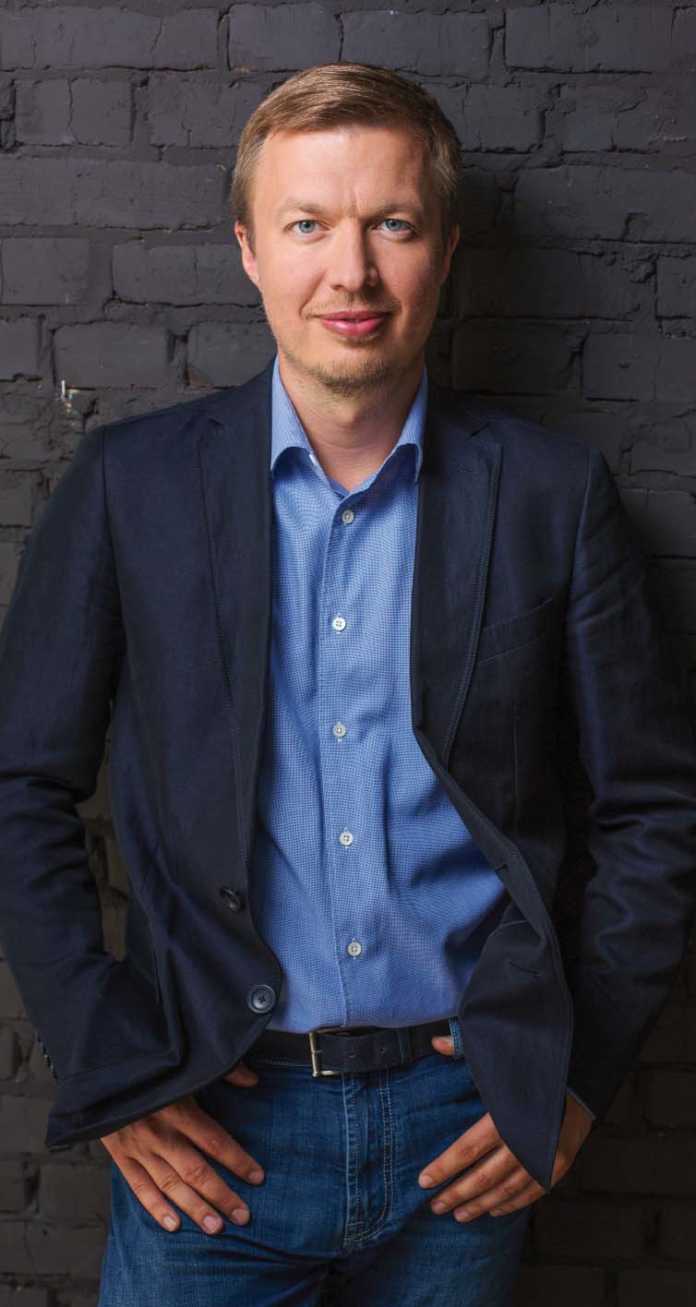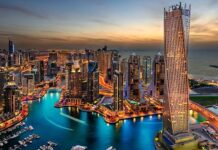Post-Soviet Ukraine should be re-established as a democratic nation-state. And it is necessary to start with the foundation. And the basis of any state is social agreement. Andriy Nikolayenko, Ukrainian diplomat, politician, statesman, tells about three main components that should re-establish our country and a new course for Ukraine in an interview with “Fashion of Diplomacy”.
Having diplomatic education and experience as a diplomat, how would you comment on the activities of the Ministry of Foreign Affairs of Ukraine in the special (2014–2017) period?
— I believe that despite certain periods of pro-Russianism, the MFA has always been one of the most pro-western Ukrainian departments… And during the Orange Revolution, and even during Yanukovych‘s time, it was the flagship of integration into Western values… The leadership of the country, which is fighting for its independence, should understand that the Minister for Foreign Affairs should be the second-third leader in the state. In my opinion, the Ministry of Foreign Affairs is now suffering — as well as a number of other departments — because the Ministry has become a continuation of the Presidential Administration. And this is wrong.
Is the breakthrough at the Eurointegration front, which happened this year, a merit of the Ministry of Foreign Affairs of Ukraine? Do you have a different opinion on this subject?
— This is a merit of the Ukrainian people who went out on the square. If the state pays such a high price for its European integration aspirations, then Europe is simply bound to meet it halfway. Therefore, I will repeat once again, this is the merit of people. As for the Ministry of Foreign Affairs, which had to carry out a purely technical part of the European integration process, then the Ministry did it brilliantly.
You worked in South Korea and you are well aware of the geopolitical situation on the Korean peninsula. Is broad-scale war possible in this region? Could this war turn into a global conflict?
— I consider the war impossible. The war can be provoked by two states — the PRC and the USA. South Korea is a hostage of circumstance. Japan is not a militaristic state. The United States could have started a military operation long time ago, but they are at a distance of salvo of fi re from the North Korean Army. And when the northern Koreans said they could turn Seoul into fi re and ashes, they did not exaggerate. But the leadership of the DPRK understands that this is a one way road. North Korea holds only on Chinese help. China could put the end to the existence of this state, but it is not beneficial for China. Even Trump, trying to get across to the DPRK, turns to China. There will be no war. China will make terms to its profit.

You were the First Deputy Head of the Donetsk Regional State Administration in the most difficult (March–September 2014) time for this region. Why did you not manage to defend Donetsk then?
— Because the Ukrainian side – to my great regret — did not realize all the cunning of the Russians. This is first of all. Secondly, the painless to Russia surrender of the Crimea caused great doubts among those who would have to defend Ukraine. Police, army and special services were demoralized after the Maidan. Also, the unpreparedness of the highest political leadership of the state at that time to take complex decisions and respond accordingly to the events played its negative role. When the Head of the Regional State Administration, Serhiy Taruta, and I were working in Donetsk, then we understood the situation day by day. In Kyiv, the same understanding of this information was happening with a delay of 2–3 weeks. Special services did not work. There was a huge imbalance in the system, although Serhiy Taruta was ready to assume at that moment a serious responsibility, but this was not supported by the leadership of the state of that time.
In the end, the time was lost when this situation could be corrected… I believe that after the presidential election a large number of personnel mistakes were made, in particular, I mean the former appointments to the Ministry of Defense…
What have you remembered most for this period?
— Two events. The first one is the first day of the real war. The first battle for the Donetsk airport. This happened in my sight. When the Donetsk airport was taken, I was called by the director of the airport. There was the 3rd Kirovograd regiment of special ops unit there. I knew these guys because of my previous work, when I headed the Kirovograd Oblast State Administration. This Special Forces Unit should have been a solution to the problem of separatism in Donetsk, but Turchynov did not consent to it. The second one is when, in late July – in early August, I saw bringing fi re to bear at Horlivka. There were a large number of casualties among the civilian population, including children.

Is it true that the Ukrainian Security Forces de facto sabotaged an attempt to eliminate the Donetsk Regional Administration, captured by separatists in March and April 2014?
— Somebody sabotaged, maybe. This should be told by counterintelligence. Perhaps there were people recruited by the opponent. Some were professionally unfit. These were the generals of peacetime, who were able to solve the issues only by drinking. They could not fight; they could not even properly study. I remember the first time when the Alfa fighter died — then, in Kyiv, it was decided to carry out the liberation operation of Slavyansk. The leader was an unprofessional man. The operation turned out to be a failure. People were killed. Incompetence and disagreement led to the first losses. The military had no command to fight. This was the greatest problem.
What are your forecasts for Donbas and Donetsk today?
 — Any war in any case ends with peace agreements. Sometimes it ends with the capitulation of one of the parties, but then these are millions of victims. This is unacceptable for Ukraine. I believe in the possibility of diplomatic solution. I believe that the Minsk format has exhausted itself. It does not work. It has achieved its goal — the end of the active phase of the war. And that is all. We need a transitional period. International administration could be the way out — since neither bandit Zakharchenko nor Zebrivsky from Kyiv will be able to manage there. This transitional international administration should base on a peacekeeping mission that, on the one hand, would provide a peaceful zone between the territory controlled by Kyiv and the Separate Districts of Donetsk and Luhansk Regions and, at the same time, control the border between Russia and the LNR-DPR. And for the enforcement of law in the Separate Districts of Donetsk and Luhansk Regions, a police mission of the CSCE must be established. It is an internal security tool. There is a huge amount of weapons there, and someone has to conduct disarmament. We have a lot of talk about the Croatian version, but they speak mostly about the military phase of the operation, little is said about its peaceful part. This operation involved joint police detachments in that area. This means that those who yesterday were on the opposite side, but wanted to stay in Croatia, passed through the procedure of amnesty, through various checks and gradually reintegrated. I think that only in a few years of such an administration it can be spoken about demilitarization there. But before this, it is necessary not only to amend the Constitution regarding the status of Separate Districts of Donetsk and Luhansk Regions. Ukraine needs a new Constitution. The Constitution that is in force is not effective, it is not people’s. The new Constitution will answer many questions. And Donbas should not be isolated. Donbas should have the same number of rights with other regions. I will say a very unpopular thing, but there are three other neighboring countries, our European Union partners, who are pursuing a very aggressive policy of pulling people and skilled workers away from us, and distributing their documents in the territory of Ukraine. If the situation goes wrong, this can lead to the disintegration of Ukraine. Such a threat exists and must be understood.
— Any war in any case ends with peace agreements. Sometimes it ends with the capitulation of one of the parties, but then these are millions of victims. This is unacceptable for Ukraine. I believe in the possibility of diplomatic solution. I believe that the Minsk format has exhausted itself. It does not work. It has achieved its goal — the end of the active phase of the war. And that is all. We need a transitional period. International administration could be the way out — since neither bandit Zakharchenko nor Zebrivsky from Kyiv will be able to manage there. This transitional international administration should base on a peacekeeping mission that, on the one hand, would provide a peaceful zone between the territory controlled by Kyiv and the Separate Districts of Donetsk and Luhansk Regions and, at the same time, control the border between Russia and the LNR-DPR. And for the enforcement of law in the Separate Districts of Donetsk and Luhansk Regions, a police mission of the CSCE must be established. It is an internal security tool. There is a huge amount of weapons there, and someone has to conduct disarmament. We have a lot of talk about the Croatian version, but they speak mostly about the military phase of the operation, little is said about its peaceful part. This operation involved joint police detachments in that area. This means that those who yesterday were on the opposite side, but wanted to stay in Croatia, passed through the procedure of amnesty, through various checks and gradually reintegrated. I think that only in a few years of such an administration it can be spoken about demilitarization there. But before this, it is necessary not only to amend the Constitution regarding the status of Separate Districts of Donetsk and Luhansk Regions. Ukraine needs a new Constitution. The Constitution that is in force is not effective, it is not people’s. The new Constitution will answer many questions. And Donbas should not be isolated. Donbas should have the same number of rights with other regions. I will say a very unpopular thing, but there are three other neighboring countries, our European Union partners, who are pursuing a very aggressive policy of pulling people and skilled workers away from us, and distributing their documents in the territory of Ukraine. If the situation goes wrong, this can lead to the disintegration of Ukraine. Such a threat exists and must be understood.
Will the visa-free regime allow us to get what everyone is waiting for? Like, will big companies come and give job to everyone?
— Large companies do not come, not because there is visa-free regime or not. They do not come because Ukraine is one of the most corrupt states in the world. In addition, now we are still losing staffing resources. Plain and simple — there will not be anyone to work with. Including the presence of the aggressive policy of our western neighbors, that actively admits our citizens, who flee from hard life in Ukraine. It is not emigration, it is evacuation. The whole industry sectors, the whole enterprises are closing.
Some words about the party. What can the new Osnova Party offer Ukrainian voters?
— The name of our party is not accidental. On the one hand, Ukraine has survived in 25 years, on the other hand — a complicated process has begun in the country, which may end not only with the loss of certain territories, but also with the collapse of the state. The only thing that can protect Ukraine is, in my opinion, and according to the people, who have united in the party building process, the unity of Ukraine as a state. Why are we in favour of the reintegration of Donbas? Because the loss of any territory launches a mechanism, that will be very similar to the Yugoslav one. And this is a terrible threat. Therefore, we believe that post-Soviet Ukraine should be re-founded as a democratic nation-state. And it is necessary to start with the foundation. And the basis of any state is a social agreement. This is how the citizens have agreed to live with each other. After obtaining a new social agreement, you can create a real people’s constitution. But this is just one component.
The second component is a plan. Even in order to build a house in the village, one must have a plan. We must know what we are building – an agrarian super state or an industrial giant. We have an economically grounded doctrine of how Ukraine can become one of the top 30 countries in the world by 2030. The corresponding structure of economy should be achievement-oriented in the world, which it will become in 10-15 years. We know how to create a middle class, how to support a person who works, since it is the key to overcoming the economic collapse.
And the third component – we know how to preserve peace in Ukraine, how to come to the gradual reintegration of Donbas. These three components are the reason, why our party is different from the others. We see the goal, we know how to achieve it and we form a team to achieve this goal.
Summing up our conversation, we can say that Ukraine is in a difficult situation. We are losing Donbas, we have an economic crisis. But the regular session of the Verkhovna Rada begins and there are plenty of reforms planned at it. What do we have to do now? Stop and start reestablishing the state?
— The country runs by inertia, but nobody thinks that there is an abyss ahead. I have recently written a post comparing the situation in Ukraine with the Titanic, which is followed by a Russian cruiser. And this “Titanic” is going down. And the higher class escapes from the ship on helicopters, the middle class – on boats, and there is the third class, which has nowhere to escape. Therefore, the only chance of salvation is to simultaneously construct another state in Ukraine, a new ship that will float another course, and people must be transplanted to this ship. The Ukrainian state with the constitution of 1996 (three times altered, by the way) and with an external enemy has no chance of surviving. Therefore, when we ask for help abroad, we do not have to ask for ammunition and money, we have to ask for another course for us.
How long will it take?
— It does not depend on one person. It depends on many conscious Ukrainians who did not go into politics, because they were busy with real affairs — they treated people, taught children, created new work places. In fact, such people are the majority. Nowadays, our task is to unite this majority so that it could start positive changes in the country, at last.













